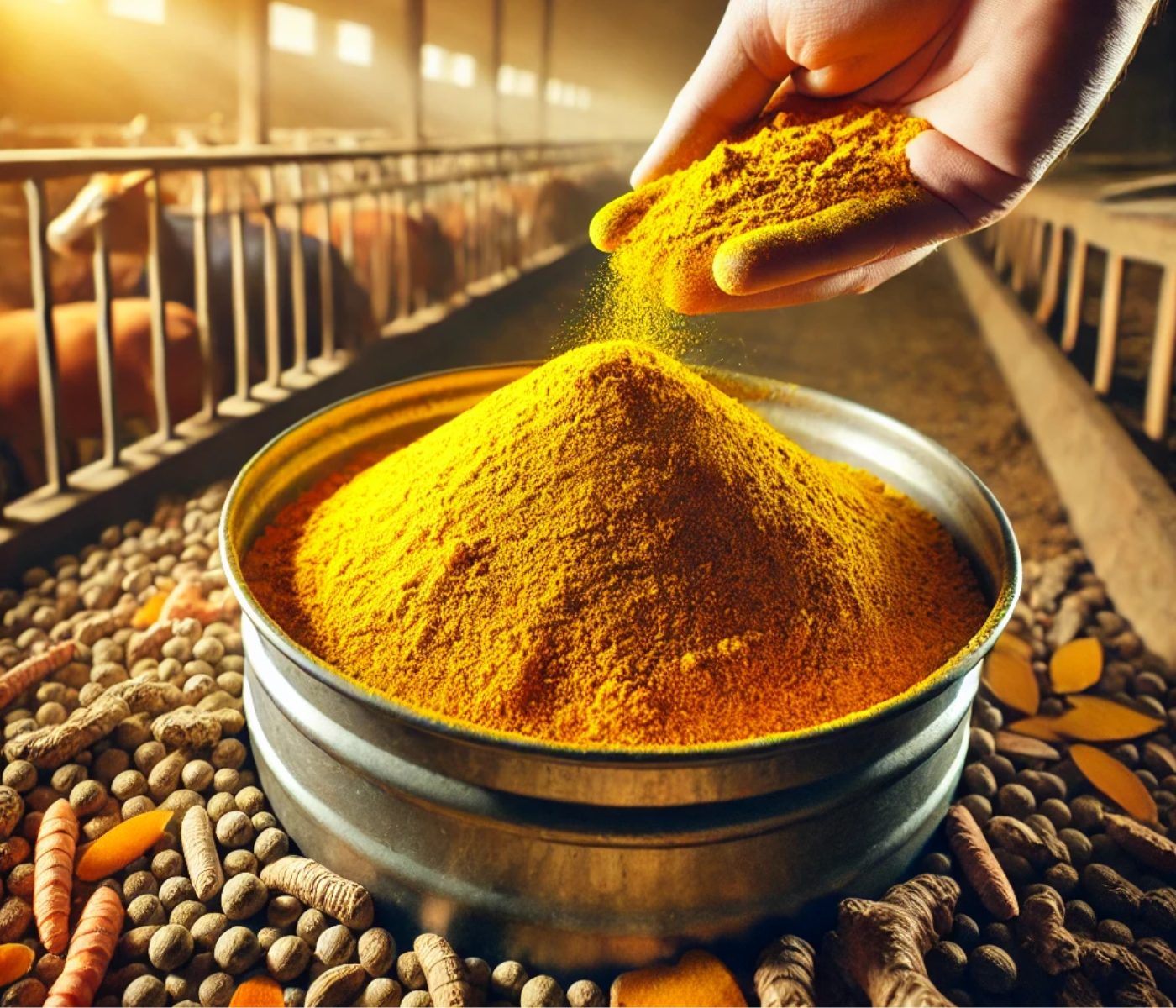 09 Feb 2025
09 Feb 2025
The Role of Turmeric and Natural Feed Additives in Animal Production
The use of natural feed additives in animal production has gained significant attention as an alternative to antimicrobial growth promoters (AGPs). With rising concerns about antimicrobial resistance (AMR) and regulatory bans on AGPs in various regions, researchers and producers have explored phytogenic feed additives such as turmeric (Curcuma longa) and other herbal extracts for their antioxidant, anti-inflammatory, and antimicrobial properties. These additives have shown potential in improving growth performance, meat quality, and overall health in livestock and poultry.
Turmeric contains curcumin, a bioactive compound recognized for its potent antioxidant, anti-inflammatory, and antimicrobial effects. In livestock and poultry nutrition, curcumin has been investigated for its role in enhancing immune response, improving feed efficiency, and promoting gut health. Studies have demonstrated its ability to reduce oxidative stress, which is a major factor affecting meat quality and production efficiency.
In broiler production, turmeric has been studied as an alternative to synthetic antioxidants. Research indicates that dietary supplementation with 100 mg/kg of curcumin can:
These effects have been linked to curcumin’s ability to modulate lipid metabolism, influence fatty acid biosynthesis, and upregulate antioxidant enzyme activity such as superoxide dismutase (SOD).
Several essential oils and herbal extracts, including cinnamon oil, thymol, and carvacrol, have been explored for their impact on animal nutrition. Studies show that:
These findings suggest that phytogenic additives can significantly influence lipid metabolism, thereby enhancing the nutritional value of animal-derived food products.
In swine production, curcumin and other herbal extracts have been studied for their ability to:
In ruminants, the incorporation of natural feed additives such as turmeric, essential oils, and polyphenols has been explored for their effects on:
Despite the promising benefits of turmeric and phytogenic feed additives, several challenges remain:
The use of turmeric and other natural feed additives represents a promising strategy for improving animal health, enhancing meat quality, and reducing reliance on antibiotics in production systems. Their ability to act as natural antioxidants, immune modulators, and gut health enhancers positions them as valuable tools in sustainable livestock farming. Future research should focus on optimizing dosage strategies, improving bioavailability, and assessing their long-term effects on animal performance and food quality.
As consumer demand for natural and antibiotic-free animal products continues to rise, the integration of phytogenics, herbal extracts, and functional feed additives is likely to play an increasing role in modern animal nutrition.
Subscribe now to the technical magazine of animal nutrition
AUTHORS

Nutritional Interventions to Improve Fertility in Male Broiler Breeders
Edgar Oviedo
The Use of Organic Acids in Poultry: A Natural Path to Health and Productivity
M. Naeem
Synergistic Benefits of Prebiotics and Probiotics in Poultry, Swine, and Cattle
Gustavo Adolfo Quintana-Ospina
Hybrid Rye Potential in Laying Hen Feed Rations
Gwendolyn Jones
A day in the life of phosphorus in pigs: Part I
Rafael Duran Giménez-Rico
Use of enzymes in diets for ruminants
Braulio de la Calle Campos
Minerals and Hoof Health in the Pregnant Sow
Juan Gabriel Espino
Impact of Oxidized Fats on Swine Reproduction and Offspring
Maria Alejandra Perez Alvarado